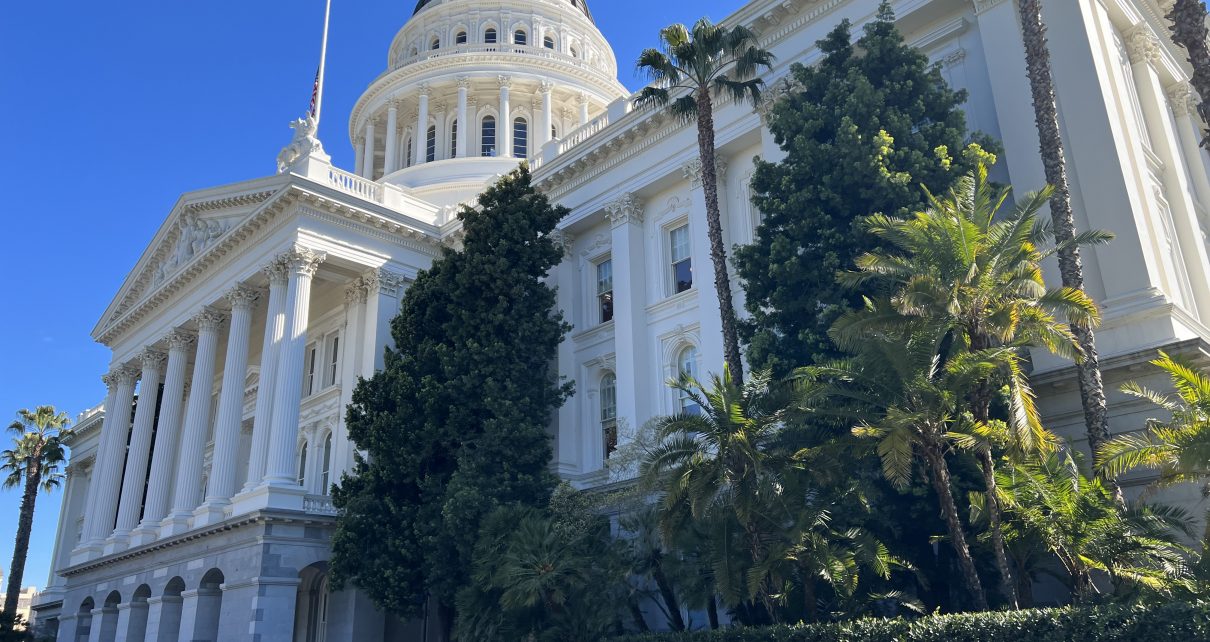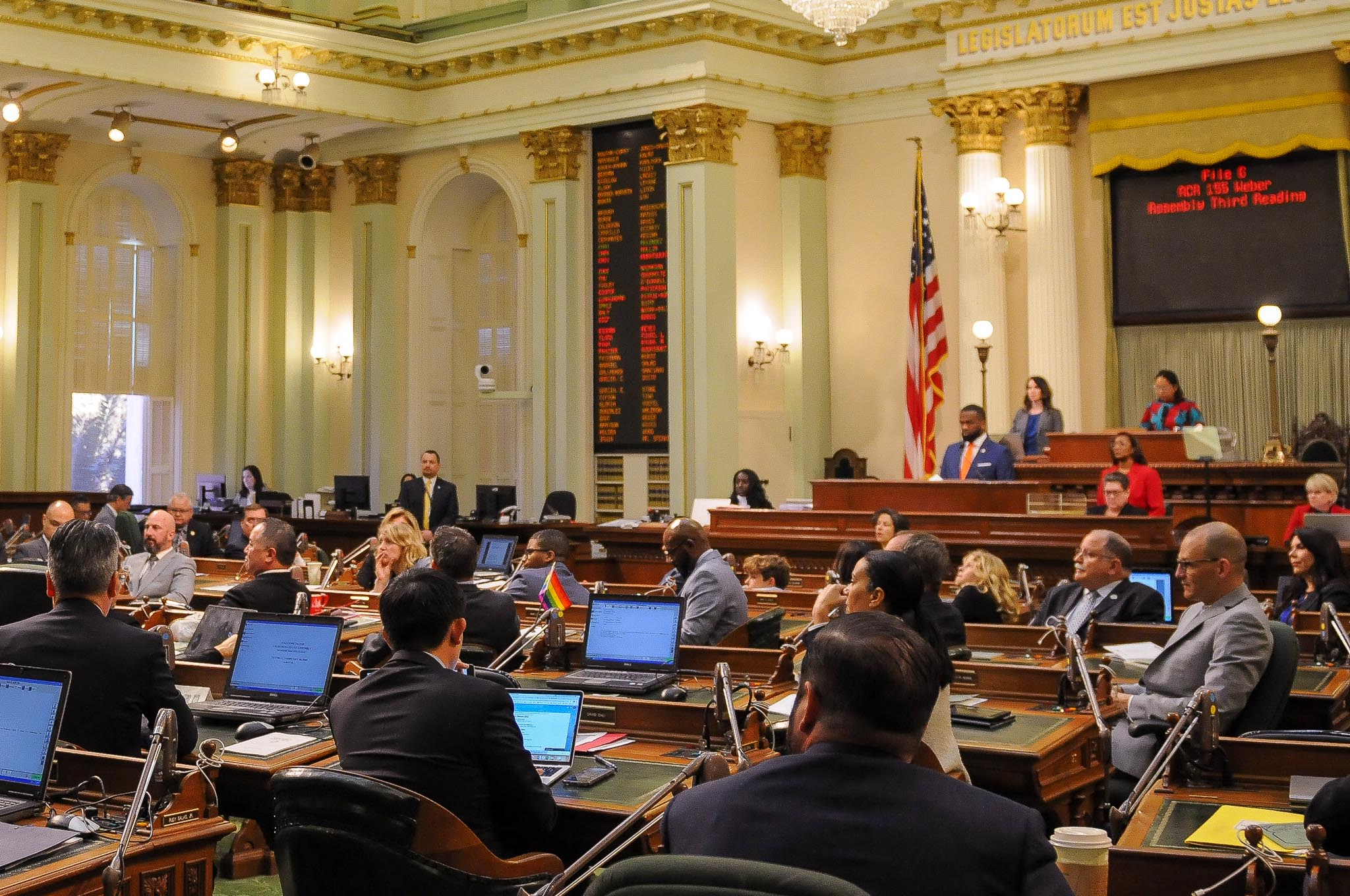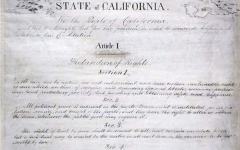
California State Capitol. (Photo: Kevin Sanders for California Globe).
California Courts and Determining Budget Revenues and Balanced Budget Requirement
The legislative and executive branches of government share authority for enactment of the state’s budget
By Chris Micheli, January 9, 2025 2:30 am
As we know from Article IV of the California Constitution, the legislative and executive branches of government share authority for enactment of the state’s budget. And, the courts have ruled that the judicial branch has a limited role and that other constitutional officers do not have any role in the budget process. There is a seminal case on this topic discusses below.
Steinberg v. Chiang, 223 Cal.App.4th 338 (2014)
The Legislature’s estimate of revenues used to determine whether the state budget complies with the balanced budget provision of the state constitution may include revenue sources not yet authorized in existing law or in trailer bills. All that the balanced budget provision prescribes for the budget bill is inclusion of a legislative estimate of revenues “made as of the date of the budget bill’s passage” that exceeds the combination of the total amount of appropriations in the bill, the existing appropriations for the upcoming fiscal year, and transfers to the reserve fund. (Cal. Const., art. IV, § 12, subd. (g).)
The balanced budget provision does not prescribe the manner in which the Legislature must calculate this estimate, the nature of the revenue sources the Legislature may or may not take into account, or any role for the Controller in overseeing the estimate. The constitutional text does not in any way expressly support the Controller’s assertion that the Legislature must enact any revenue bills (which cannot be part of the budget bill itself) along with identified trailer bills in the budget before the constitutional deadline of June 15.
Indeed, the Controller overlooks the extent to which California balances its budget with federal funds, the authorization for which is entirely outside the control of the Legislature (and the predicted total of which bespeaks more legislative artistry than accounting skills). Given this absence of any express language to support the Controller’s asserted concern with vouchsafing the absence of any phantom revenues included in a budget bill’s estimate, it would amount to “inappropriate judicial interference with the perogatives of a coordinate branch of government” to endorse his intrusion into the budget process under “the guise of interpretation.” (Schabarum v. California Legislature (1998) 60 Cal.App.4th 1205, 1218)
This does not mean the balanced budget provision is a dead letter. The Governor can enforce it either through vetoing the budget as a whole or exercising the power to veto line items to bring appropriations in balance with accurate revenues. (Cal. Const., art. IV, § 10, subds. (a) & (e); see Schabarum, 60 Cal.App.4th at pp. 1240–1241 (dis. opn. of Morrison, J.) [noting Governor’s oath to uphold Constitution in review of whether limits on legislative spending in budget honored].) Moreover, as with any legislation, the judicial branch is the ultimate arbiter of its constitutionality (although we eschew any attempt at pondering the form of action or the standard of review involved).
Given that constitutionally no role exists for the Controller to play because the revenue estimate in the budget bill is not limited to existing law (or trailer bills), his assertion— that the electorate necessarily implicated his existing audit function before issuing warrants for legislative salaries in the enforcement of the balanced budget and timely budget constitutional provisions—is beside the point. Additionally, its underlying premise is incorrect.
Consequently, where the Legislature is the entity acting indisputably within its fundamental constitutional jurisdiction to enact what it designates as a balanced budget, the Controller does not have audit authority to determine whether the budget bill is in fact balanced. In addition, it would not make any sense as a matter of statutory interpretation to believe the Legislature granted such statutory review authority in defining the Controller’s powers where the Legislature in turn can ultimately override the Controller’s decision. As a result, the Controller is not a party to the enactment of the budget bill.
This case arose because the state Controller, one of nine statewide elected constitutional officers in California, made a unilateral decision to claim the state budget was not balanced. The state Supreme Court ruled that the Controller had no role in that determination and that the estimate of revenues and expenditures is done in the state budget bill and is determined by the Legislature and Governor alone.
- Insignia of Nonprofit Associations - February 19, 2026
- Endangered Species Regulation - February 19, 2026
- Renewal of Judgments - February 18, 2026




